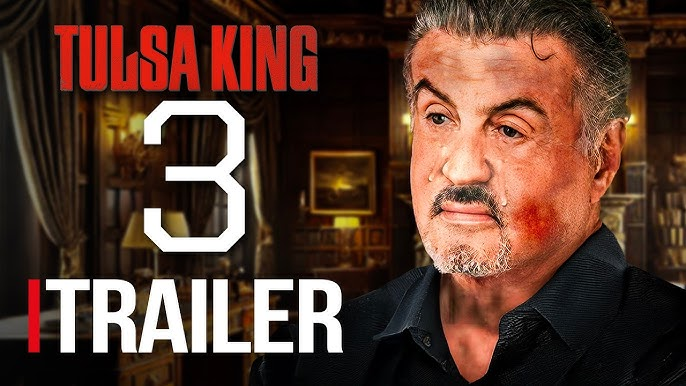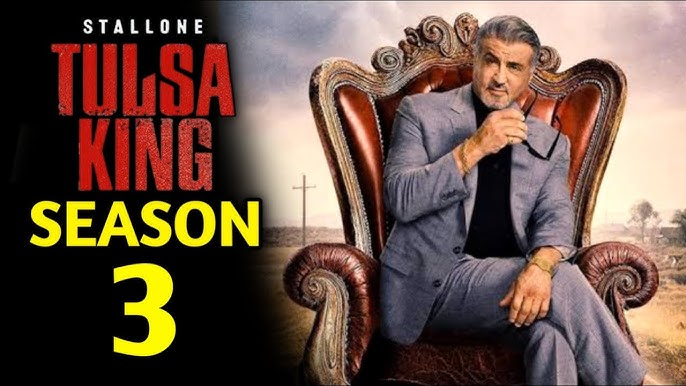The streets of Tulsa are restless, and the silence left in Dwight Manfredi’s absence is deafening. Tulsa King – Season 3 (2025) does not simply continue the story—it sharpens it, transforming the gritty crime saga into a war for power, survival, and legacy.

From the closing moments of Season 2, when Dwight was taken by mercenaries, the series set itself on a collision course with chaos. Season 3 opens in the shadow of that abduction, and the city quickly becomes a chessboard where loyalty is tested, alliances fracture, and enemies lurk in every corner.
Sylvester Stallone returns with the same granite charisma that made Dwight unforgettable, but here, the stakes are higher than ever. Stripped of control and cast into exile, Dwight must claw his way back, proving that even in absence, his legend casts a shadow large enough to keep rivals trembling.

The heart of this season lies in betrayal. Friends falter under pressure, others see opportunity in the cracks, and the streets themselves whisper rebellion. The tension between loyalty and ambition is relentless, fueling every confrontation with the sense that one wrong step could shift the balance of power.
Dave Erickson, stepping in as showrunner, injects the series with a grittier, sharper edge. His storytelling leans into the paranoia of power, the fragility of trust, and the brutality of survival. The result is a season that feels both darker and more explosive, a natural evolution of the saga.
The dual filming locations—Oklahoma and Atlanta—give the show a striking visual palette. Tulsa’s raw edges clash with the sleek menace of Atlanta’s underworld, expanding the empire beyond its original borders while still grounding the story in the city Dwight calls his kingdom.

Action remains at the forefront, but it is not action for spectacle’s sake. Each brawl, each ambush, each blood-soaked standoff is a step in Dwight’s fight to reclaim not only his throne but his identity. Stallone, weathered but unyielding, embodies the weight of a king who knows that power comes at a cost.
Supporting characters rise and fall in fascinating arcs, some grasping for the crown, others consumed by fear or guilt. These shifting dynamics create a sense of constant unpredictability—no alliance feels safe, and no betrayal feels impossible.
Beneath the violence, however, lies the series’ core: Dwight’s humanity. His struggle is not only with enemies who want him erased but with the shadow of his own choices. The deeper he wades into war, the more the question emerges—what kind of king will he be when the crown is his again?
Season 3 builds like a storm, each episode layering strategy, tension, and blood until the war for Tulsa becomes inevitable. And when the clash arrives, it is not simply about dominance; it is about survival, legacy, and the price of loyalty in a world built on shifting sands.
In the end, Tulsa King – Season 3 proves that while the king may fall, the war never does. With Stallone commanding the throne, Erickson sharpening the blade, and the city itself caught between order and ruin, this season is not just television—it is a battle hymn.




